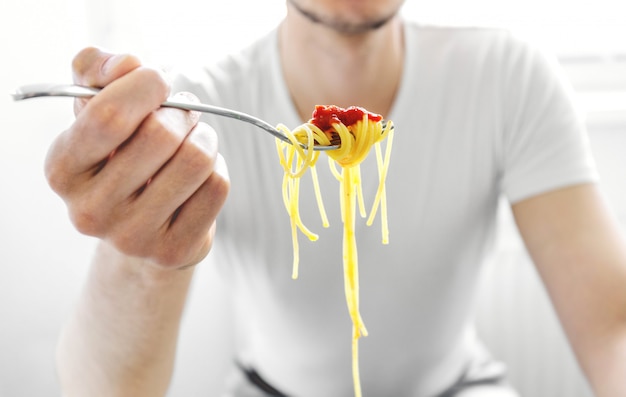
If you want to lose weight, you might think you should count calories and eat less, but that’s not necessarily the case, according to personal trainer Terry Fairclough, co-founder of Your Body Programme.
As a personal trainer, I hear all kinds of opinions and questions about the best diet for weight loss. Should we count calories? How many should we eat? Should our diets be low fat, low carb, or high protein? Should we fast or eat small, regular meals three times a day? It’s easy to get confused.
While a significant calorie deficit can lead to weight loss, it’s important to remember it doesn’t always mean fat loss. Many people still think that drastically cutting calories is the way to go, but that’s not true.
When we eat, our bodies turn carbohydrates into glucose, which our cells use for energy. If we don’t need that energy right away, our muscles and liver store the glucose as glycogen, which holds water. When we cut calories, we lose stored carbohydrates and water—not necessarily fat. Long-term calorie deficits can make our bodies hold onto fat and use protein for energy instead.
Protein is essential because it’s biologically active and helps burn fat to fuel muscles, even at rest. Therefore, it’s important to eat enough calories that include fats, carbs, and protein. Also, fat is a vital and long-lasting energy source. It provides more energy per gram than carbs or protein. Our bodies need fat to perform well during exercise; without it, we won’t have enough energy.
Cutting calories too much can also lead to nutrient deficiencies, affecting every system in our bodies. This can lead to various health issues like fatigue, malnutrition, osteoporosis, anemia, hormone-related conditions, and more. Stress from extreme calorie deficits increases cortisol, a stress hormone that breaks down energy stores, often leading to muscle loss and an eventual slow metabolism.
When our bodies are stressed and not getting enough nutrients, our metabolism slows, and we may gain fat, especially around the belly. This can lead to thyroid problems and reduced digestive function since our bodies prioritize sending energy to muscles for fight-or-flight situations. Poor digestion means we’re not absorbing essential nutrients, impacting our health and weight loss efforts.
Sleep can also be affected by calorie cutting. Low blood sugar levels can release adrenaline, waking you up and disrupting sleep. Poor sleep has a domino effect on many aspects of health and can contribute to weight gain.
I’ve known bodybuilders who restrict calories to get lean before competitions, then increase them afterward. This cycle can cause health issues if not done correctly. Continual calorie cutting leads to a point where further cutting isn’t possible, and basic body functions start to break down. This can severely impact metabolism, making weight loss feel impossible.
The bottom line is, it’s crucial to eat the right number of calories, including carbs, fat, and protein, based on your body type, goals, activity level, and more. The Your Body Programme helps people figure this out. Eating more calories can actually help you lose fat, provided you’re eating the right kinds of foods.
Make sure to eat plenty of lean proteins—like beef, chicken, eggs, and fish—or plant-based proteins like tofu and tempeh. Include lots of healthy carbs from fruits, vegetables, sweet potatoes, quinoa, brown rice, and whole wheat pasta. Don’t forget healthy fats from sources like avocados, nuts, seeds, and olive oil.
In summary, nourish your body correctly to keep your metabolism strong and achieve your weight loss goals.